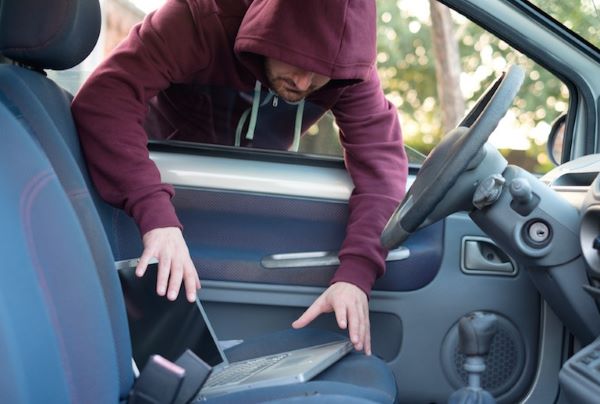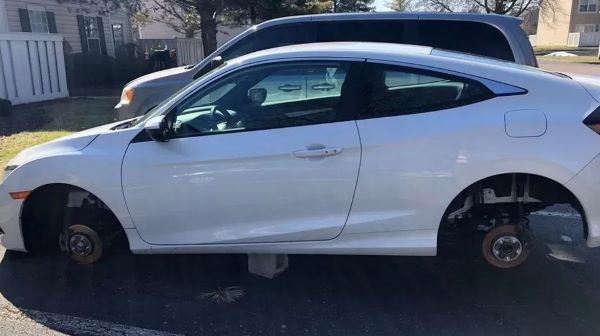Have you been charged with a theft crime in North Carolina? Do not take those charges lightly. Theft crimes in North Carolina can be a misdemeanor or felony charge, depending on the extent of the crime and the amount of property stolen. This guide explores the various types of theft crimes in North Carolina and their associated penalties.
What are Theft Crimes in North Carolina?
Theft, known as larceny, is a serious charge in North Carolina. A conviction for this crime can have serious and long-term consequences, aside from stiff penalties.
Theft in North Carolina is treated as the unlawful taking of another person’s property. It is defined in North Carolina law under crimes against property.
Like most crimes of this nature, it typically involves a threat or use of force. However, even with a lack of force or threat of physical harm, one can still be charged with theft. It is especially true in cases wherein an individual (the accused) takes another’s property to keep it for any intended purpose permanently.
Theft Charges in North Carolina & Their Penalties
There are multiple classifications of theft crimes in North Carolina and their corresponding charges. It differs by the nature of the crime and the amount of property involved.
Larceny or Theft of Property
Larceny or theft of property is a crime involving property that costs $1,000 or less. It is classified as a Class 1 misdemeanor charge in North Carolina. Meanwhile, any crime of a similar nature that involves property that is worth more than $1,000 is a Class H felony.
Meanwhile, North Carolina law classifies any theft of property as a Class H felony if it involves a firearm or an individual with four prior convictions, especially for similar crimes of theft. Hence, prior criminal history can play a role in determining how stiff the penalties are against these cases.

Possession of Stolen Goods
Possessing stolen goods, whether or not you are aware that the goods are stolen, can be a serious offense in North Carolina. It is classified as a Class H felony if the person possessing the stolen goods is aware, or has reasons to become aware, that they are in possession of a stolen item.
According to North Carolina law, possessing stolen goods does not mean they should be with you at the time of the arrest. It can be any property or area you had control over, such as in your vehicle or home.
Therefore, keeping a stolen item in your home can be enough grounds to charge you with a Class H felony.
Concealing Merchandise for the Purpose of Shoplifting
Retail crimes are widespread in North Carolina and the US. Anyone caught concealing goods or merchandise intending to shoplift that item is charged with a Class 3 misdemeanor. In a different type of crime, changing the price tag of an item to pay less than the actual value of the merchandise is also considered a theft crime in North Carolina.
In addition, North Carolina law prohibits using lead- or aluminium-lined bags to prevent alerting anti-shoplifting devices in commercial spaces. If caught doing this, you could be charged with a Class H felony.
Shoplifting
Shoplifting is a different category of theft crime prevalent in North Carolina. It involves stealing merchandise or goods from a retail store valued over $200. If the store has a legal notice about shoplifting being a felony offense, committing this crime entails a class H felony charge. Any activity designed to deactivate or destroy anti-shoplifting devices is a class H felony.
Employee Theft
Employee theft is another example of a theft crime in North Carolina. It is when an employee over the age of 16 steals from their employer, with the goods valued at $100,000 or more. This type of crime comes with a Class C felony charge.
Theft of Motor Vehicle Parts
The theft of motor vehicle parts in North Carolina is classified as a Class II felony, especially when the cost of the repair of the vehicle is $1,000 or higher. The penalties for Class II felony apply unless another theft statute in the state indicates that the crime constitutes a higher punishment.

Chop Shop Activity
This type of theft crime in North Carolina is considered as using stolen motor vehicle parts to reassemble, modify, or alter another motor vehicle. Those caught doing this activity and know that these parts are stolen are guilty of committing this crime. In addition, any business or personal space that permits such activity can also be held liable under North Carolina law. It is charged with a Class G felony.
Penalties for Theft Crimes in North Carolina
The specific penalties for theft crimes in North Carolina differ according to the classification of the charge. For example, class 3 and class 2 misdemeanors have a penalty of 30 days in jail and a $200 fine. A second offense entails a higher penalty of up to 60 days in jail and $1,000 fine.
Meanwhile, a class 1 misdemeanor has a maximum penalty of 120 days in jail and fine. For a class H felony, the penalty is up to 24 months in prison, presuming that the guilty party will spend at least six months of incarceration.
Work with a Theft Attorney in North Carolina
If you are facing theft charges in North Carolina or know someone dealing with them, it is recommended that you consult a theft attorney in Greensboro, NC. Their expert insights can help develop a formidable defense against theft crimes, especially if you are innocent or facing charges more serious than what was committed.
Since the majority of the theft crimes are a felony in North Carolina, responding to your charges promptly can minimize the potential detrimental impacts of these charges on your future. An experienced lawyer with a proven track record can help you quickly navigate these charges.


